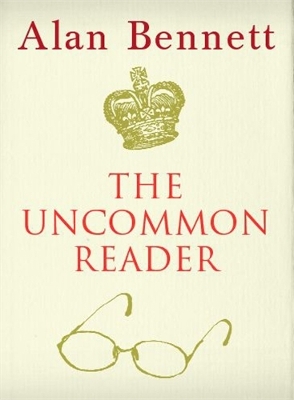
'Oh Norman,' said the Queen, 'the prime minister doesn't seem to have read any Hardy. Perhaps you could find him one of our old paperbacks on his way out.'
Had the dogs not taken exception to the strange van parked in the royal grounds, the Queen might never have learnt of the Westminster travelling library's weekly visits to the palace. But finding herself at its steps, she goes up to apologise for all the yapping and ends up taking out a novel by Ivy Compton-Burnett, last borrowed in 1989. Duff read though it proves to be, upbringing demands she finish it and, so as not to appear rude, she withdraws another. This second, more fortunate choice of book awakens in Her Majesty a passion for reading so great that her public duties begin to suffer. And so, as she devours work by everyone from Hardy to Brookner to Proust to Samuel Beckett, her equerries conspire to bring the Queen's literary odyssey to a close.
Subversive and highly enjoyable, The Uncommon Reader offers the perfect argument for reading, written by one of its great champions, Alan Bennett.
A short novella on the joys, growth and enlightenment reading can bring, even to the most enlightened, at any time in life. It's also an accurate portrayal of the consuming obsession reading can become (truth, as we all well know).
Layered atop this testimony of the power of the word is another accurate portrayal of the divide that exists between those who read and those that don't. Those who don't read should be forced to read this book, so that they know just how stupid they are relative to those that do. When empathy for others and a focus on inner reflection over sartorial splendour are confused with senility and deterioration ... well at least senility is honourable; nothing honourable about ignorance. But boy, do the readers get their revenge at the end - few books I've read ended with a better closing line.
My only complaint about this wonderful, brilliant little book is the author's conclusion that the natural outgrowth of reading must be to write. This conceit leaves a rather large ding in my enjoyment of the book. So is his assertion that to merely read is to be merely a spectator. Both are flagrantly wrong, although how an author could naturally fall into such a self-supporting perspective is obvious. Most readers will read their entire lives without every having a moment's urge to write, and I'd bet quite a few, like myself, often read and then go out and do. I mean, I can't be the only person who's propped a book about knot tying in the crook of a tree, simultaneously reading about how to tie a knot, while actually trying to tie said knot, am I?
If you share either of my complaints, don't let it stop you from reading this book given the opportunity. It's worth the small aggravations and disagreements to experience this charming, thoughtful and beautifully written novella.
One final note: Being Queen would suck. There are not enough books and private libraries in all the holdings of the British monarchy that would make referring always to oneself in the neutral third person worth it. If one had to constantly refer to oneself as one, one would send oneself's own head to the chopping block. Ho-ly hell.
Reading updates
-
Started reading
-
18 March, 2018:
Finished reading
-
18 March, 2018:
Reviewed
